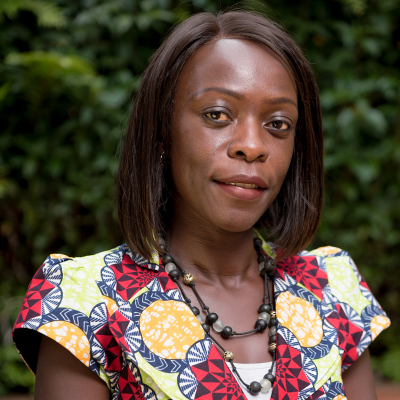Soil is fundamental to ecosystem health and human health, but its vital role is often overlooked. This episode, to coincide with World Soil Day 2020, will highlight how research at the Center for International Forestry Research (CIFOR) and World Agroforestry (ICRAF) into soil and ecosystems contributes to make soil healthier, more productive and an important ally in efforts to address global climate change.
Although 95 percent of food is directly or indirectly produced in soil, it is estimated that 40 percent of it is degraded, according to the U.N. Food and Agriculture Organization. Degraded soils hinder production, leading to food insecurity. Human activities have a direct impact on land-use changes and unsustainable land management leading to land degradation. Concerted efforts are required to improve soil health as it is a vital contributor to feeding and nourishing a growing population.

Photo by Mokhamad Edliadi/CIFOR
Healthy soils also support the efforts of governments in meeting their national targets to restore functioning ecosystems, under such initiatives as the Bonn Challenge, a commitment to restore 150 million hectares of the world’s deforested and degraded by 2020 and 350 million hectares by 2030 made during the 2014 U.N. Climate talks as part of the New York Declaration on Forests. Soil health also contributes to achieving the U.N. Sustainable Development Goals (SDGs) and will factor into the objectives of the U.N. Decade on Ecosystem Restoration.
Many ecosystem services are also supported by soil. A diverse community of plants, animals and microbes are beneficiaries of healthy soil, but if existing relationships are disrupted, ecosystems can lose their most important functions.
Listen along to explore the hidden world underfoot with CIFOR-ICRAF specialists Leigh Ann Winowiecki, leader of soil and land health research, and Rupesh Bhomia, wetland biogeochemist.
CIFOR-ICRAF has been a pioneer of research into soil health—linking land-use, biodiversity and soil health indicators to inform local and national policies. Now, as more global initiatives recognize the importance of protecting and restoring soil health and biodiversity to achieve the SDGs, there is an even more promising future for soil research, restoration and rehabilitation activities.
Explore CIFOR-ICRAF research on soil:
- Soil-Plant Spectral Diagnostics Lab
- The Sustainable Wetlands Adaptation and Mitigation Program (SWAMP)
- ‘Data streaming from the spectrometer’: a new dawn for soil assessments
Related publications:
- The Land Degradation Surveillance Framework (LDSF)
- The Land Degradation Surveillance Framework Field Guide
- Full Brochure 2020: Using Planned Comparisons in East Africa and the Sahel
- Predicting the Spatial Distribution and Severity of Soil Erosion in the Global Tropics using Satellite Remote Sensing
- Carbon Stocks from Peat Swamp Forest and Oil Palm Plantation in Central Kalimantan, Indonesia
- Spatial and temporal variability of soil N2O and CH4 fluxes along a degradation gradient in a palm swamp peat forest in the Peruvian Amazon
- Total ecosystem carbon stocks of mangroves across broad global environmental and physical gradients
We want you to share Forests News content, which is licensed under Creative Commons Attribution-NonCommercial-ShareAlike 4.0 International (CC BY-NC-SA 4.0). This means you are free to redistribute our material for non-commercial purposes. All we ask is that you give Forests News appropriate credit and link to the original Forests News content, indicate if changes were made, and distribute your contributions under the same Creative Commons license. You must notify Forests News if you repost, reprint or reuse our materials by contacting forestsnews@cifor-icraf.org.









